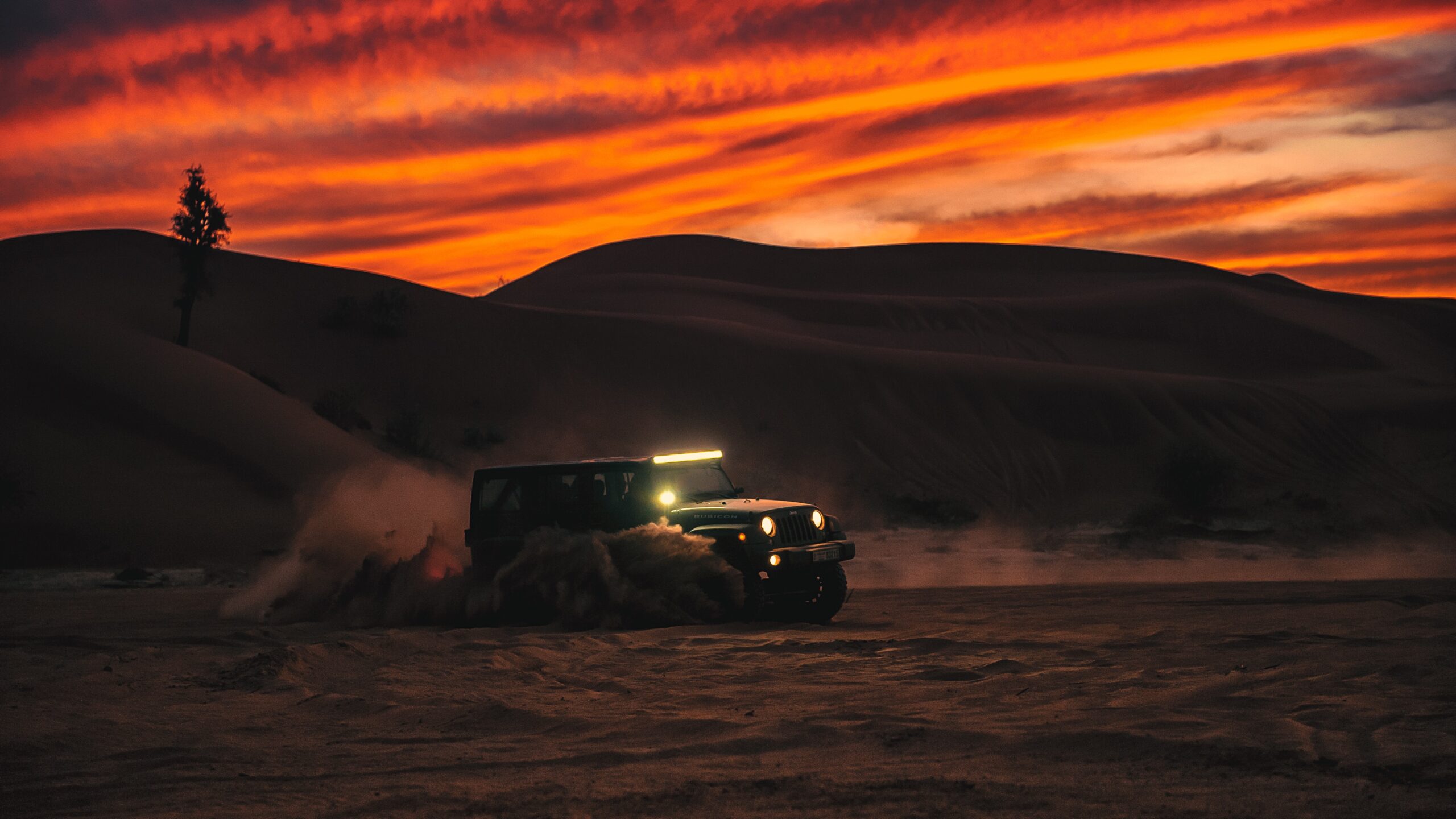Our client was a passenger in an all terrain vehicle that was offroading. You may have seen these recreational vehicles before getting towed becasue they are not street legal. They have large tires and built to drive over rough uneven ground. These vehicles are often built sturdy and even have some safety features but occupants can still be injured if the vehicle flips or rolls over.
That is exactly what happened to our client. Everything seemed fine until the driver attempted to drive up a steep incline. The vehicle flipped seriously injuring the driver and the passenger. Our client required emergency treatment and lost time from work. He had medical expenses not covered by insurance and lost wages. He was wondering if insurance would cover his injuries from offroading.
Who Pays for The Injuries from Offroading?
Thankfully, the driver of the vehicle had insurance that would cover injuries. If that seems like a convenient answer, it’s because it is one—and it is the first important takeaway from this scenario. Being a passenger on an “off-highway vehicle” (OHV) such as a four-wheeler, three-wheeler, ATV, or snowmobile can be fun and the last thing on your mind would be the risks.
Often people operate ATVs with a feeling that it can drive over anything and handle any obstacle. They may even act recklessly due to the lack of oversight. If you own an ATV, your car insurance will likely not cover you if you are involved in an accident. Some homeowners’ policies may, but this is never something you should assume. There are more than 700 deaths associated with OHVs annually, and it is essential to take the proper precautions, even as a passenger.
Our client was fortunate because the driver had insurance that covered the injuries. The first important consideration is to be aware of the risks before engaging in the activity.
Injuries from Offroading
Offroading can be an exciting and adventurous activity, but it comes with its fair share of risks. Injuries can occur when you’re offroading due to a variety of factors, including the challenging terrain and the potential for accidents. Here are some ways you can be injured while offroading:
- Vehicle Rollovers: Rolling over is one of the most common and serious offroading accidents. It can happen when a vehicle attempts a steep incline or decline, takes a sharp turn too quickly, or encounters uneven terrain. Rollovers can result in injuries ranging from minor cuts and bruises to severe trauma.
- Crashes and Collisions: Offroading often involves driving in close proximity to other off-road vehicles. Collisions can happen, particularly in areas with limited visibility or narrow trails, leading to injuries such as whiplash, broken bones, and more.
- Ejection from the Vehicle: If a vehicle rolls over or experiences a sudden impact, occupants may be ejected from the vehicle, leading to serious injuries, including head injuries, fractures, and internal injuries.
- Falls and Trips: Offroading frequently involves getting in and out of the vehicle or traversing challenging terrain on foot. Falls and trips can result in sprains, strains, fractures, and other injuries.
- Trail Hazards: Off-road trails can contain a variety of natural hazards, such as rocks, tree roots, and steep drop-offs. Hitting these obstacles can cause damage to the vehicle and result in injuries to occupants.
- Exposure to the Elements: Offroading often takes place in remote or rugged locations, where extreme weather conditions can be a factor. Exposure to extreme heat or cold, dehydration, and hypothermia are potential risks.
- Mechanical Failures: Vehicle breakdowns or mechanical failures in remote off-roading locations can pose risks. Being stranded without essential supplies can lead to injuries or discomfort.
- Winching and Recovery Mishaps: When a vehicle becomes stuck or disabled, the use of winches and recovery equipment can be dangerous if not used correctly. Injuries may occur during the process of recovering a vehicle.
- Burns and Fires: Vehicle engines and exhaust systems can become extremely hot, increasing the risk of burns. Additionally, an off-roading vehicle can catch fire due to mechanical issues or accidents.
- Debris and Projectiles: Offroading can stir up dust, gravel, and rocks, which can be thrown into the air by vehicle tires. These projectiles can pose a risk to both occupants and bystanders.
- Wildlife Encounters: Offroading often takes place in areas where wildlife is present. Encounters with animals can lead to injuries, especially if the animals feel threatened or provoked.
- Inadequate Safety Gear: Not wearing appropriate safety gear, such as helmets, seat belts, and protective clothing, increases the risk of injury in offroading accidents.
To minimize the risk of injury while offroading, it’s crucial to follow safe practices, including using well-maintained vehicles, adhering to recommended speed limits, wearing appropriate safety gear, and staying within your skill level and vehicle capabilities. Additionally, understanding the terrain and potential hazards of the specific off-roading location is essential to ensure a safe and enjoyable offroading experience.
But even if you follow safety guidelines you can still be injured.
When Insurance makes a low offer…
We have addressed this previously, but it is imperative regarding how much compensation you are entitled to. Because the driver was insured and the vehicle’s passenger was covered, the insurance company intially offered our client a settlement but it was very low. In otherwords, ever though there is insurance, they may still not treat you fairly. We took over and collected evidence to increase the offer.
When an insurance company offers you money, it is highly enticing to accept quickly. The amount may be significant, and you may be in dire need of it. Once you accept that money, and you sign the settlement agreement, your claim is over. At the very least, you should contact an attorney to verify whether the offer is reasonable, given the circumstances.
Howell, LLP Fights for Your Compensation
If you are involved in an accident, you may miss work while facing mounting medical bills. Howell, LLP, will work to recover what you have lost, and our role is to ensure the amount you receive genuinely reflects the extent of your injuries. Contact our office today to schedule your free case evaluation.


